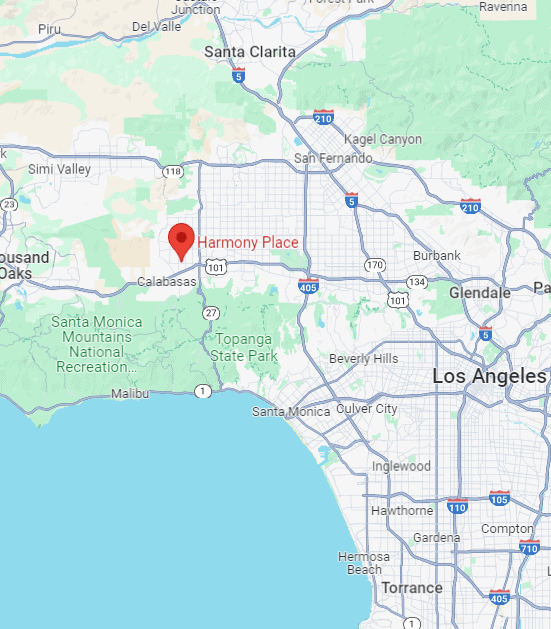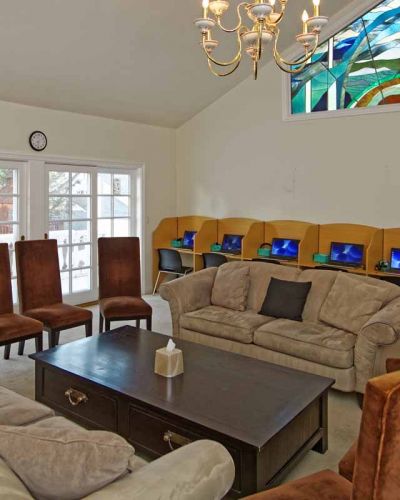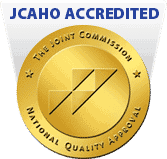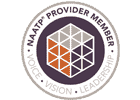90-Day Drug & Alcohol Rehab Programs in Los Angeles, CA
At Harmony Place’s treatment center in Woodland Hills, Ca, we specialize in providing comprehensive 90-day inpatient rehab programs for drug and alcohol addiction. Our team is dedicated to supporting patients on their journey to recovery, offering a structured environment conducive to healing and growth.
At Harmony Place, we prioritize accessibility and affordability. Our long-term addiction recovery programs feature personalized care plans that include individual counseling, group therapy sessions, and evidence-based courses of treatment like Cognitive Behavioral Therapy (CBT). We understand holistic care is important and provides a supportive community where individuals can address underlying issues and develop coping strategies. Contact us to verify your insurance and learn more about our 90-day rehab programs.
What Is a 90-Day Inpatient Rehab Program in Southern California?
A 90-day inpatient rehab in Los Angeles provides intensive, 24/7 care for people battling substance abuse. These programs are structured to offer personalized treatment plans that include individual therapy, group counseling, and evidence-based therapies like Cognitive Behavioral Therapy (CBT). The focus is on addressing underlying issues contributing to addiction and teaching essential coping skills for sustained recovery.
Facilities like Harmony Place, located in Southern California, often emphasize holistic approaches, integrating physical, mental, and emotional wellness with amenities such as outdoor activities and wellness programs to support overall health and healing.
Why Choose a 90-Day Program?
A 90-day rehab program is often considered the gold standard for addiction treatment because it provides sufficient time for both physical and psychological recovery. Shorter programs may help with detoxification, but a 90-day stay allows clients to address the underlying causes of addiction, develop coping skills, and practice new behaviors in a structured environment.
During this extended period, individuals can participate in intensive therapy, group counseling, and educational sessions that focus on long-term recovery strategies. The extra time also helps clients stabilize physically after withdrawal, strengthen mental health, and reduce the risk of relapse once they return to their normal environment.
Another reason to choose a 90-day program is the opportunity to build strong support networks and establish routine. Recovery is not just about abstaining from substances; it’s about learning how to navigate life without relying on alcohol or drugs. The structured schedule and ongoing therapy in a 90-day program give clients a solid foundation for long-lasting sobriety.
Benefits of a 90-Day Rehab Center
Benefits of a 90-day rehab program may include:
- Provides enough time for safe detoxification and physical stabilization
- Allows for intensive therapy including individual and group counseling
- Gives clients the time to develop and practice coping skills to manage cravings and triggers
- Helps in rebuilding daily routines and healthy habits for long-term recovery
- Offers mental health support for co-occurring disorders such as anxiety or depression
- Creates opportunities to build strong peer and professional support networks
- Reduces the risk of relapse by allowing gradual reintegration into daily life
- Provides a structured environment that promotes accountability and discipline
- Focuses on long-term recovery planning, including aftercare and relapse prevention
We Will Check Your Insurance
Do 90-Day Rehab Centers Offer Dual Diagnosis Treatment in Los Angeles?
Yes, many 90-day rehab centers in Los Angeles, including Harmony Place, offer dual-diagnosis treatment. This specialized approach addresses both substance abuse and co-occurring mental health disorders simultaneously. Dual-diagnosis programs integrate therapies that target addiction and anxiety dual diagnoses or bipolar disorder.
Treatment may include medication management, individual therapy, group counseling, and psychiatric support to effectively address the complex needs of people with dual diagnoses. These programs aim to address the interconnected nature of substance use and mental health disorders, promoting long-term recovery and improved overall well-being. Contact Harmony Place to inquire about our dual-diagnosis treatment offerings and how they can meet your needs.
Do 90-Day Drug Rehab Near Me That Accept Medicaid Support in Los Angeles?
Some 90-day rehab programs in Los Angeles may accept Medicaid, but availability can vary depending on the facility and your specific Medicaid plan. Medicaid coverage for long-term rehab typically includes substance abuse treatment, though details such as the length of stay and covered services may vary.
If you’re searching for a 90 day rehab near me that accepts Medicaid, it’s important to contact rehab centers directly to confirm acceptance and clarify what services are covered under your plan. Harmony Place encourages individuals to verify their Medicaid coverage and explore any potential out-of-pocket costs or additional services that may not be covered to ensure a well-rounded, long-term treatment plan.
Why is 90-Days the Gold Standard?
A 90-day rehab program is often considered the gold standard because it provides enough time to address both the physical and psychological aspects of addiction. Shorter programs may help with detoxification, but three months allows clients to heal their bodies, work through underlying emotional issues, and develop sustainable recovery habits.
Research shows that longer treatment durations are linked to better long-term outcomes and lower relapse rates. The extended stay gives clients time to participate in multiple therapy modalities, including individual counseling, group therapy, and educational workshops, which strengthens coping mechanisms and life skills.
Another reason 90 days is the benchmark is that it provides a structured environment to practice sobriety consistently. Clients can gradually reintegrate into daily life, learn how to navigate triggers, and build a supportive network, all while still under professional supervision. This combination of structure, skill-building, and time for recovery makes 90-day programs particularly effective for lasting sobriety.
How Much Do 90-Day Rehab Programs Cost in Los Angeles?
The cost of 90-day drug rehab or 90-day alcohol rehab in LA can vary widely based on several factors. On average, residential programs range from $10,000 to $30,000 per month, totaling $30,000 to $90,000 for a 90-day stay. Luxury facilities or those offering specialized therapies may exceed this range.
Insurance coverage often helps offset the cost of rehab, with many plans covering a portion or all of residential program expenses. Some facilities offer financing options or income-based sliding-scale fees to make treatment more accessible. It’s essential to contact rehab centers directly to discuss specific costs, payment plans, and insurance verification to determine the best financial approach for your needs.
Does Insurance Cover 90-Day Rehab Programs in Los Angeles County?
Many commercial health insurance plans cover three-month rehab programs in Los Angeles County, but coverage can vary by insurance provider and plan. At Harmony Place, we work with several major insurance providers to help make treatment accessible and affordable.
Some of the insurance providers Harmony Place is in-network with include Blue Cross Blue Shield, Aetna, Cigna, and Humana. It’s important to contact us directly or check your insurance provider’s network to verify coverage details, including any co-pays, deductibles, or out-of-pocket expenses you may incur. Our team is here to assist you in navigating insurance coverage and finding the best options for your rehab treatment needs.

How to Find Rehab Centers with 90 Day Inpatient Addiction Treatment Near Me
Are you or a loved one searching for 90-day drug rehab near me? At Harmony Place in Los Angeles, we offer a range of comprehensive programs to support recovery from substance abuse, including Partial Hospitalization Programs (PHPs), Intensive Outpatient Programs (IOPs), Medication-Assisted Treatment (MAT), and general outpatient services. We are accepting new patients and invite you to call us today to begin your journey toward recovery.
Our dedicated team is here to provide personalized care and support every step of the way, ensuring you receive the treatment that best meets your needs. Contact Harmony Place at to take the first step towards a healthier future.
90 Day Alcohol & Drug Treatment Program in Woodland Hills, California
Embarking on a 90-day alcohol and drug treatment program at Harmony Place means receiving comprehensive care in a supportive environment. Harmony Place’s residential facilities at 23041 Hatteras St., Woodland Hills, CA 91367, and 22913 Burbank Blvd., Woodland Hills, CA 91367, accept insurance to make treatment accessible.
Additionally, Valley Restoration Center, 22900 Ventura Blvd., Ste. 314, Woodland Hills, CA 91364, offers outpatient services for continued support after residential treatment. Contact us to discuss insurance coverage and our 90-day rehab in the Golden State.
Alternative Ways to Find Long-Term Three-Month Alcohol & Drug Treatment Programs in LA
Finding a suitable three-month rehab program in SoCal involves several steps. Explore online resources, consult with professionals, seek recommendations, and evaluate facilities based on location, services, and accreditation. Ensure the program aligns with your needs and verify insurance coverage before deciding.
- Explore Options Online: Begin by conducting research using search engines or addiction treatment directories. Use terms like “90-day treatment centers nearby,” “90-day addiction treatment,” or “90-day rehab facility” to uncover relevant options.
- Contact Treatment Referral Lines: Contact addiction treatment referral helplines, hotlines, or support organizations. These resources can provide you with a list of respected three-month-long rehab services in your area and provide guidance on selecting an appropriate program.
- Consult Healthcare Providers: Seek advice from healthcare professionals like therapists, counselors, or addiction specialists. Their expertise can offer recommendations tailored to your needs and familiarity with local time-limited rehab centers.
- Seek Personal Recommendations: Gather suggestions from friends, family, or acquaintances undergoing addiction treatment. Their firsthand experiences can guide you toward a reputable 3-month rehab center and offer valuable insights.
- Review Feedback and Testimonials: Evaluate online reviews and testimonials from former clients to assess the quality of care provided by the rehab centers you are considering. Pay attention to feedback on treatment effectiveness, staff competence, and overall client satisfaction.
- Verify Licensing and Accreditation: Ensure the rehab centers you consider hold proper licensing and accreditation. This validates their adherence to high standards of care and ethical practices.
- Consider Location and Accessibility: Assess the location of the rehab centers you’re considering. Consider factors such as proximity to your residence, workplace, or support network. Determine whether you prefer a local facility or are open to traveling for treatment.
- Evaluate Treatment Approaches: Investigate the treatment methods and services each rehab center offers. Confirm that their approaches, including therapies, counseling options, detoxification services, and ongoing support, align with your specific needs.
- Contact Facilities: Contact the rehab centers on your shortlist. Ask about their limited-stay treatment programs, therapeutic philosophies, staff qualifications, available amenities, and any specialized requirements you may have.
- Confirm Insurance Coverage and Costs: Verify that the rehab centers you’re considering accept your insurance plan and inquire about financing options. Understand the full cost of the program, including any potential additional expenses, to ensure financial compatibility with your budget.
- Arrange a Site Visit: Schedule a visit to the 90-day rehab centers you are considering. This lets you tour, meet staff members, and experience the treatment environment firsthand. Ask detailed questions and gather comprehensive information.
- Make a Well-Informed Decision: Review the data you gathered during your research and compare the 90-day rehab centers you’re considering based on their suitability to your recovery needs. Consider factors like treatment approaches, location convenience, facility amenities, and overall comfort level to make the best choice for your rehabilitation journey.
What Is a 90-Day Inpatient Rehab Admissions and Intake Process in Los Angeles?
The intake process for a 90-day rehab program for residential therapy in Los Angeles typically begins with a thorough assessment upon arrival. You’ll meet with intake coordinators and healthcare professionals who will gather information on your medical and substance use history and any mental health concerns. This helps them tailor a personalized treatment plan that meets your specific needs.
Expect to provide insurance information, discuss financial arrangements, and complete necessary paperwork. Once admitted, you’ll undergo a detoxification process if needed, followed by immersion into the structured daily routines of addiction therapy sessions, group counseling, and educational workshops. The intake process ensures comprehensive care from when you arrive, setting the foundation for your recovery journey.

What Is a 90-day Drug Rehab Treatment Program Process and Schedule At Harmony Place?
90-day addiction rehab treatment programs in the Los Angeles area follow a structured schedule designed to support your months-long recovery journey. Typically, your day will begin with morning activities such as breakfast and mindfulness exercises to promote mental clarity and focus.
Throughout the day, you’ll participate in various therapies like Cognitive Behavioral Therapy (CBT), which helps you identify and modify negative thought patterns contributing to addiction. Dialectical Behavior Therapy (DBT) teaches emotional regulation skills to manage intense emotions, while individual counseling sessions provide personalized support and insight into your progress. Group therapy fosters peer support and communication skills, allowing you to learn from others’ experiences and build a supportive network. Holistic therapies like yoga, art therapy, and meditation may complement your treatment plan, promoting overall wellness and stress management. This structured approach in a long-term recovery program ensures a well-rounded treatment experience tailored to your needs and goals.
What Happens After a 90-Day Rehab Program Is Completed?
After completing a 90-day rehab program for drug and alcohol addiction , you’ll undergo an evaluation to assess your progress and determine your readiness for transitioning back to daily life. This helps outline ongoing support needs and potential areas for continued growth. Groups like Alcoholics Anonymous (AA) or Narcotics Anonymous (NA) provide ongoing peer support and accountability crucial to maintaining sobriety.
Explore aftercare options tailored to your needs, including outpatient therapy, individual counseling, or continued participation in structured programs to reinforce relapse prevention strategies. Consider sober living environments that offer a supportive, drug-free community to ease the transition from residential treatment to independent living. These steps ensure a continuum of care supporting your long-term recovery beyond the initial 90-day intensive rehab program.
Challenges of Committing to a 90-Day Program and How to Overcome Them
Committing to a 90-day rehab program can feel daunting due to the time, emotional, and financial demands involved. Being away from work, family, and daily responsibilities for three months may create anxiety or guilt for many individuals. Additionally, the intensive schedule and structured environment can feel overwhelming at first.
Financial concerns are another common challenge. While insurance may cover part of the cost, some clients face out-of-pocket expenses or worry about lost income during treatment. Planning ahead and exploring options such as insurance coverage, sliding scale fees, or financial assistance programs can help reduce this burden.
Emotional challenges can also arise as clients confront the underlying causes of addiction and adjust to a sober lifestyle. Support from family, friends, and peer groups within the program is critical. Maintaining regular communication with loved ones, setting realistic goals, and leaning on counselors for guidance can help clients stay motivated. By addressing these obstacles proactively, individuals can fully benefit from the comprehensive care and long-term recovery advantages offered by a 90-day program.
- Inpatient Rehab Los Angeles
- Intensive Outpatient Program Los Angeles
- Evening Intensive Outpatient Program
- Medication Assisted Treatment Los Angeles
- Outpatient Rehab Program Los Angeles
- Los Angeles Partial Hospitalization Program
- Medically Assisted Detox LA
- Sober Living Homes and Halfway Houses
- Clinical Care Los Angeles
- Family Therapy Rehab Program
- Couples Rehab Los Angeles
- Men’s Addiction Rehab California
- Women’s Rehab Center SoCal
- Addiction Treatment for Veterans
- Short-Term Addiction Rehab
- Long-Term Addiction Rehab
- Private Luxury Rehab Los Angeles
- Faith-Based Rehab Programs
- Non-Faith-Based Rehab
- Rehab for Professionals LA
- Rehab Aftercare Alumni Programs
Greater Los Angeles Statistics and Info About Three-Month-Long Drug & Alcohol Rehabs
- California is the 23rd least expensive state in the U.S. for the cost of residential drug rehab, according to the National Center for Drug Abuse Statistics.
- Drug rehab centers in California serve 96,960 patients each year.
- 71 substance abuse facilities in the state offer free drug rehab treatment.
- From 2017 to 2019, there was a 68% increase in facilities in California that provide residential care for substance use treatment, according to the California Health Care Foundation.
- 13.2% of clients in substance use disorder treatment in 2019 were enrolled in non-hospital residential care.
Call Us 24/7: (855) 652-9048
Certifications & Accreditations

























